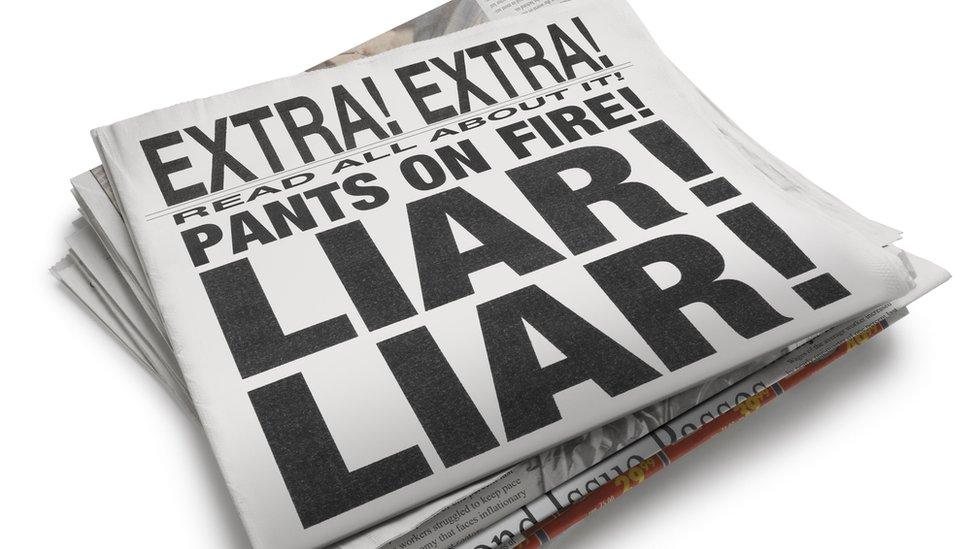US Election 2016: Trump's 'hidden' Facebook army
- Published

Donald Trump's spectacular victory in the US presidential election on 8 November took many by surprise.
Polls seemed to significantly underestimate his support and few pundits gave him a chance.
But many Trump voters, it turned out, were hiding in plain sight - on Facebook.
Thousands of home-grown Trump support pages populate the social networking site. They are a mix of closed and open groups. Most have a few hundred members. But many have thousands. And a few, like American Patriots for Donald J. Trump, external, have hundreds of thousands of followers.

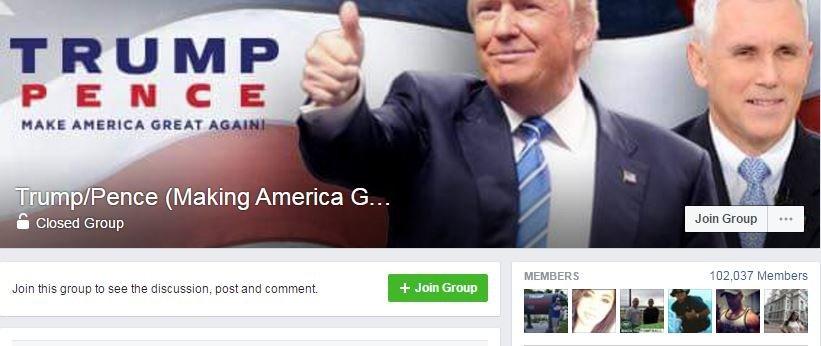
"There's really no other place you can talk about Trump in a positive light," says Ann Iuen, who lives in Fort Lauderdale, Florida, and started the Americans for Trump, external Facebook group.
"People were scared to give their support to Trump in front of their family and friends," she says. "There's a certain amount of animosity towards us."
This is a common complaint among Trump supporters, many of whom say they feel muzzled by political correctness, the press, and even their neighbours.
Iuen's Facebook group has more than 56,000 members. She says she tries to keep the conversation civil: banning those who comment from swearing, self-promotion and posting threats.
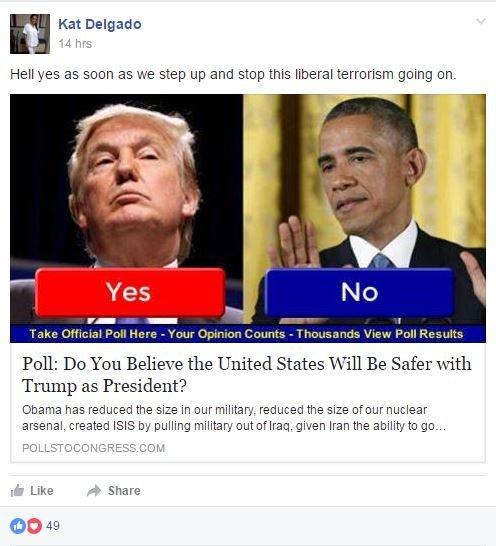
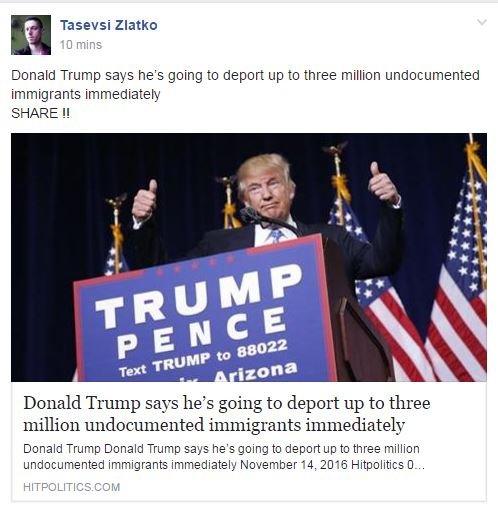
In many groups, Trump supporters share news and are often scathing or defamatory towards Hillary Clinton. Many post fake news stories alongside factual pro-Trump articles.
Widely circulated fake stories include accounts of Pope Francis endorsing the Republican candidate, Hillary Clinton murdering an FBI agent and President Obama "admitting" he was born in Kenya.
Fake news of this nature spread so widely during the campaign, Facebook founder Mark Zuckerberg was criticised for not doing more to suppress hoaxers. In response he's promised to crack down on fake news, while at the same time denying fake stories swung the result.
Joshua Benton, director of the Nieman Journalism Lab at Harvard University, points out that several hoax news stories were shared hundreds of thousands of times on Facebook - far more than many legitimate investigative stories about both Trump and Clinton.
"[Zuckerberg] said that less than 1% of information on Facebook is actively a hoax," Benton says. "I would point out that Facebook is really big, so 1% of Facebook is still an awful lot."
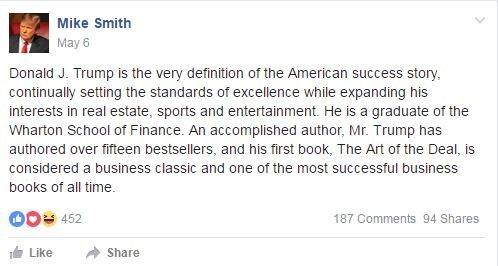
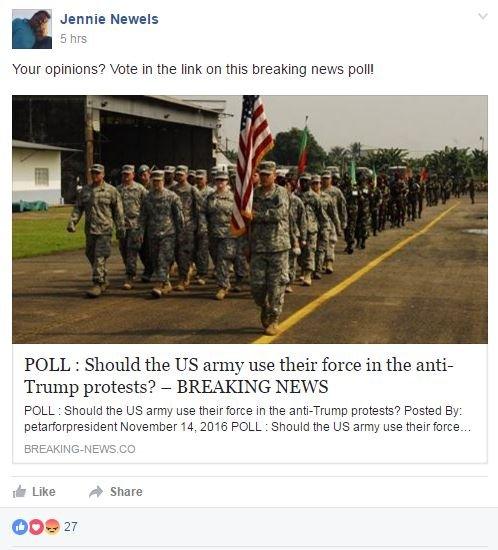
According to Pew Research, external more than 60% of US adults got their election news from social media this year - up from 49% during the 2012 election. In his first major TV interview, broadcast on CBS on Sunday, Trump credited his social networking accounts for leading him to victory despite being outspent by the Clinton campaign in key states.
"I think that social media has more power than the money they spent, and I think maybe to a certain extent, I proved that," he said.
But the rise and rise of social media as a news source has brought along with it another fundamental problem. Algorithms designed to deliver stories users will like tends to feed them news articles that reinforce their political perspectives, while depriving them of material that challenges their views. As a result, users spend most of their time in virtual spaces known as "filter bubbles".
"Social networks are based in large part - and Facebook to a very extreme degree - on the personal relationships that you have," Benton says. "It's based on who your friends are, who your acquaintances are, and our friends, for the most part, tend to share our political points of views."
"So our Facebook relationships end up leading to us seeing more content that confirms our existing points of view," he says. "That is a different form of getting news than we used to see with newspapers, where the idea would be at least a nominally objective perspective would be presented to you, rather than something that's designed to please you as a conservative or as a liberal."
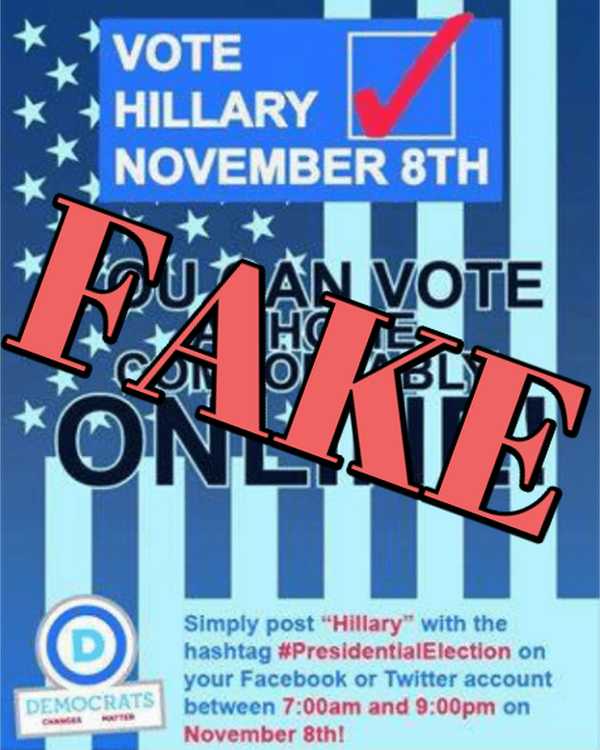
One fake meme that made the rounds online claimed voters could cast their ballots online
Arguments about the perils of social news will continue. Meanwhile, Trump Facebook groups continue to thrive, even though the election is history. Ann Iuen's group has added more than 10,000 members in the week since the 8 November result. A number of new groups have formed since Trump's victory.
"We the people are sick and tired of being taken advantage of by Republicans & Democrats," reads the description attached to the page Donald J. Trump President of the United States, external.

Blog by Charlie Northcott and Mike Wendling, external
More election coverage from BBC Trending: Are hate crimes spiking after Donald Trump's victory?

Dozens of reports of alleged hate crimes have surfaced on social media in the wake of the election of Donald Trump. READ MORE
You can follow BBC Trending on Twitter @BBCtrending, external, and find us on Facebook, external. All our stories are at bbc.com/trending.
- Published18 April 2015
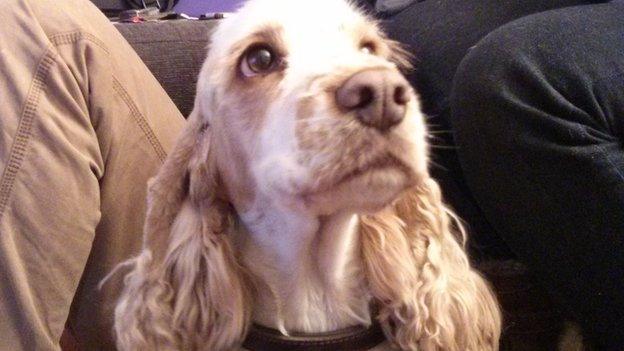
- Published6 November 2016
